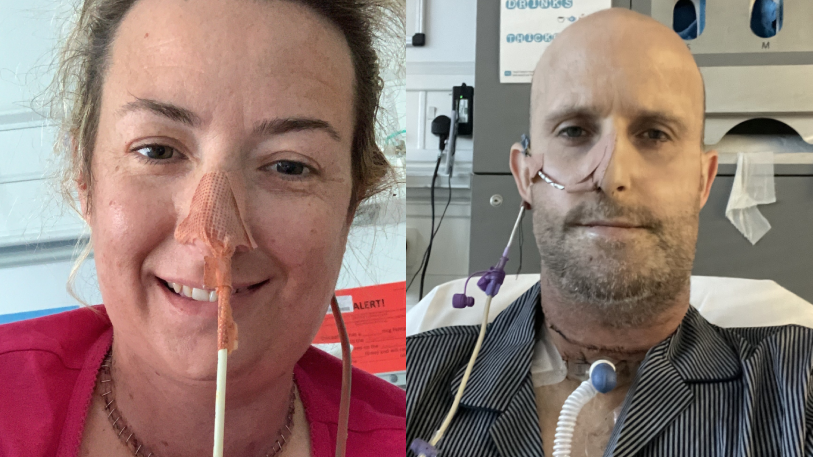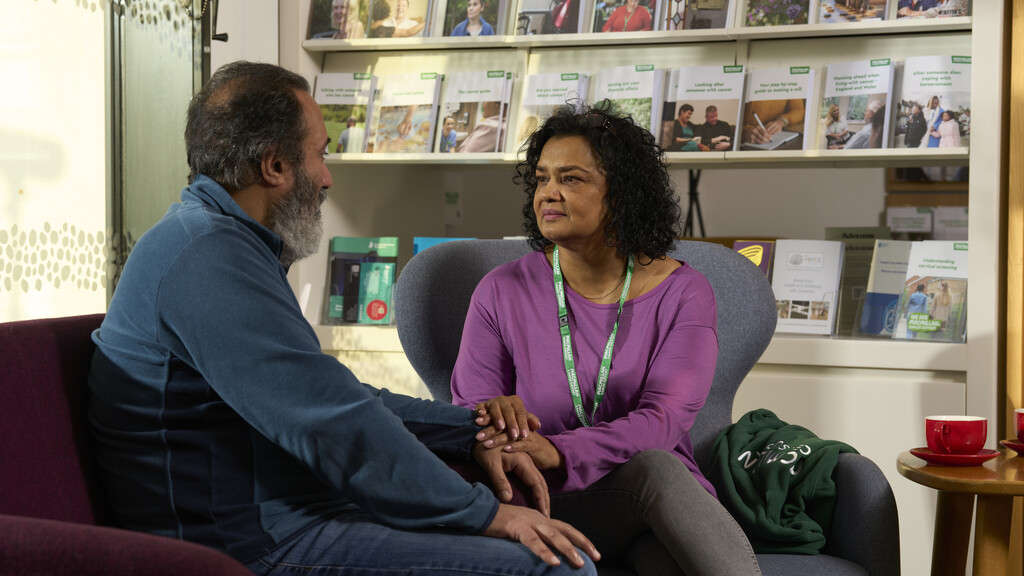Could underrepresented groups be left behind by developments in artificial intelligence?
As we continue to adapt to the changing world around us, Roxane Heaton, Chief Information Officer at Macmillan Cancer Support, discusses Artificial Intelligence (AI), a topic that comes with mixed emotions for many. From excitement and intrigue to wariness, it’s vital that we think about the role that it could play in Macmillan’s future.
The AI debate
What is AI (Artificial Intelligence) and what role is it playing in healthcare?
AI is a broad range of technologies that attempt to mimic human thought to solve problems. Things that humans have traditionally done through thinking and reasoning are increasingly being done by AI. It’s being used by some healthcare providers to support people with cancer and it’s likely that this will become more common in the future.Representation from day one
AI is still relatively new, but it’s already having an impact. There’s still lots of testing and learning to be done and this will accelerate in years to come. Broadly, the designers of AI programmes tend to be very similar in their education, their income and where they live. We need more diversity if we don’t want people to be left behind. It’s not just about the people who design these models, it’s the data that’s used to teach them. In cancer care it is crucial that representation and diversity of thought is considered from the beginning so that it reflects the communities we serve.
As AI develops in the future, we need to see a proactive and intentional approach ensuring that people from marginalised and seldom heard communities are involved in the development from the start.
More than one meaning
Words mean different things for different people, so when it comes to AI programmes there may be language or interpretation barriers. For example, imagine we designed a virtual chatbot therapist to support people living with cancer. We would need the therapist to be empathetic and personable, yet ‘empathy’ means different things for different ages, genders, and ethnic backgrounds. For some who are multilingual, the experience of feeling heard or listened to by another person is done through the prism of language and gesture. So, there’s a real risk that by eliminating the human-factor we might leave people behind.Engagement is key
The bigger risk is not taking part
Though there are areas within AI that require attention and development, our biggest risk is not taking advantage of new digital technologies to help support us in cancer care. With a growing and ageing population, the volume of support needed for people with cancer is only set to continue to rise and with an already stretched workforce AI could be the answer to many medical efficiencies and could make a huge difference.
The future of Macmillan and AI
We know from our work to understand cancer care in the future, that AI will undoubtedly be a part of what Macmillan does in the coming years, and we are leaning into this. We’re starting small, focusing on an ethical approach, and ensuring that we can trust the data available to us. We are mindful of gaps within the current technology that could mean marginalised groups are left behind. We’ll continue to keep the needs of people living with cancer at the heart of everything we do.What's next?
As part of our work to transform Macmillan, we have set up teams of colleagues to tackle the big questions about cancer.We are now putting this work into practice and looking at the answers our teams have come up with alongside other evidence to make the best possible decisions about how Macmillan should evolve.
By doing this, we will ensure we are providing the best most equitable and inclusive support for people with cancer now and in years to come.
Visit Transforming Macmillan Together for the latest updates.
About our information
This blog was written by a former Macmillan employee, the content has since been reviewed.
Learn more about how we produce our cancer information.
Read more
-
News and stories 10 Sep 2025In this blog, Gemma reflects on the impact Macmillan made last year ahead of the launch of Macmillan Cancer Support's Annual Report for 2024.
-
News and stories 03 Sep 2025Anthony Cunliffe, National Lead Medical Adviser at Macmillan, explains why more needs to be done to make cancer care fair.
-
News and stories 10 Jul 2025The Prime Minister launched the government’s long-awaited 10 Year Health Plan, outlining a vision to “bring the NHS closer to home.”





